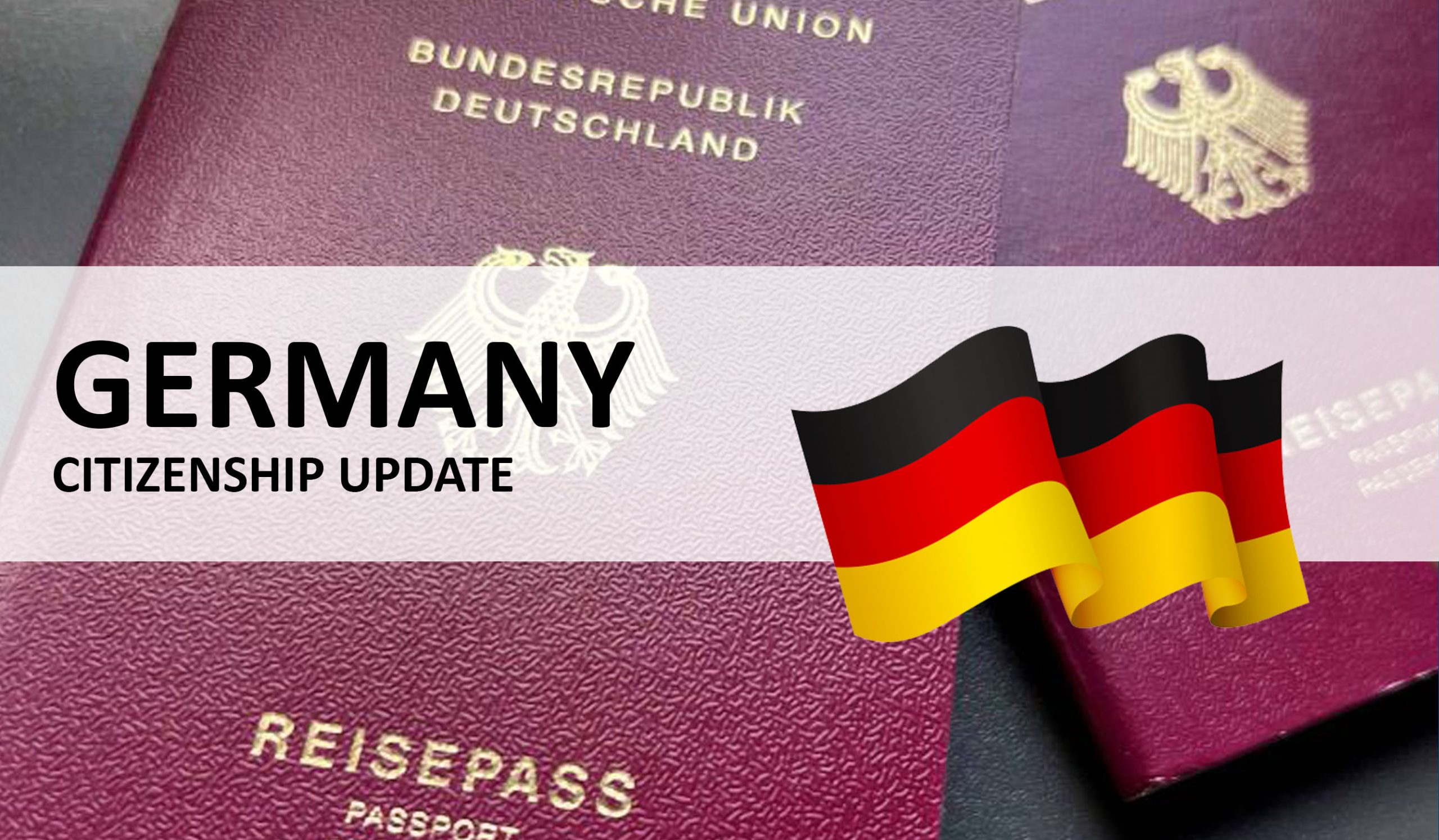Germany Eases Rules for Foreigners Seeking Citizenship
A new law enacted by the German parliament expedites and simplifies the naturalization process for foreign nationals residing in the nation. For the majority of applicants, the bill also eliminates the limitations on holding dual citizenship. According to the government, the change would enhance immigrant integration and draw more highly qualified labourers to Germany.
What are the new rules?
The new law shortens the eight-year qualifying period for citizenship to five years. The waiting time may be lowered to three years if the applicant has achieved “special integration accomplishments,” such as volunteering, learning German, or entering the workforce.
Additionally, the legislation now gives children born in Germany automatic citizenship if one parent has lived there lawfully for five years, as opposed to the previous eight.
For the majority of people who wish to become German citizens, the legislation eliminates the idea of avoiding dual citizenship. Previously, unless they were excluded for certain circumstances, applicants from non-EU countries as well as Switzerland had to relinquish their previous nationality upon obtaining German citizenship. They can now maintain both passports unless their nation of origin prohibits holding two citizenships at the same time.
By the legislation, candidates must also be financially competent to support themselves and their families, except those who fall under specific categories, such as workers who entered East Germany during the Cold War or former “guest workers” who arrived in West Germany before to 1974.
The law requires that applicants be committed to the “free democratic fundamental order” of Germany and clarifies that antisemitic and racist acts are incompatible with that.
Why did Germany change the law?
The government says that the new law reflects the reality of Germany as a country of immigration and diversity. It says that 14% of the population, or more than 12 million people, do not have German citizenship and that about 5.3 million of them have lived in Germany for at least a decade. It says that the naturalization rate in Germany is well below the European average and that the new law will encourage more people to apply for citizenship.
The government also says that the new law will help Germany compete for skilled workers from around the world, as it faces a shortage of labour and an ageing population. It says that offering citizenship is an important factor in attracting and retaining talent and that allowing dual citizenship will make it easier for people to maintain ties with their countries of origin.
The government argues that the new law will strengthen the integration of immigrants and their participation in society, as citizenship gives them the right to vote, run for office, and access public services. It says that the new law will also promote social cohesion and respect for diversity, as it recognizes the multiple identities and backgrounds of German citizens.
How has the law been received?
The centre-left coalition of Chancellor Olaf Scholz, which comprises the Social Democrats, the Greens, and the Free Democrats, passed a law. The coalition claims that the law is a historic advancement for Germany and an update to its citizenship law, which dates back to 2000.
On the contrary, the main center-right opposition bloc, consisting of the Christian Democrats and the Christian Social Union, opposed the law. The opposition argues that the law is too lenient and will weaken the value of German citizenship. Moreover, it believes that the law will create issues of loyalty and identity and obstruct the integration of immigrants.
The law was also criticized by some groups representing immigrants and refugees, who say that the law does not go far enough and that it still excludes many people from citizenship. They say that the law should have abolished the requirement of financial self-sufficiency, which they say discriminates against low-income and unemployed people. They also say that the law should have granted citizenship to all children born in Germany, regardless of their parent’s status.
The law was welcomed by some groups representing expatriates and dual citizens, who say that the law will end the dilemma of having to choose between two nationalities. They say that the law will make it easier for them to maintain their cultural and family ties, and to travel and work across borders.
What are the next steps?
The law still needs to be approved by the upper house of parliament, the Bundesrat, which represents the 16 federal states of Germany. The Bundesrat is expected to vote on the law in February 2024. If the law is passed, it will come into effect on July 1, 2024.
The government says that it will launch an information campaign to inform the public and potential applicants about the new law and its benefits. It says that it will also provide more resources and support for the authorities that process citizenship applications, which are expected to increase as a result of the law.
The government says that it hopes that the new law will inspire more people to become German citizens and contribute to the development and diversity of Germany.


Leave a Reply